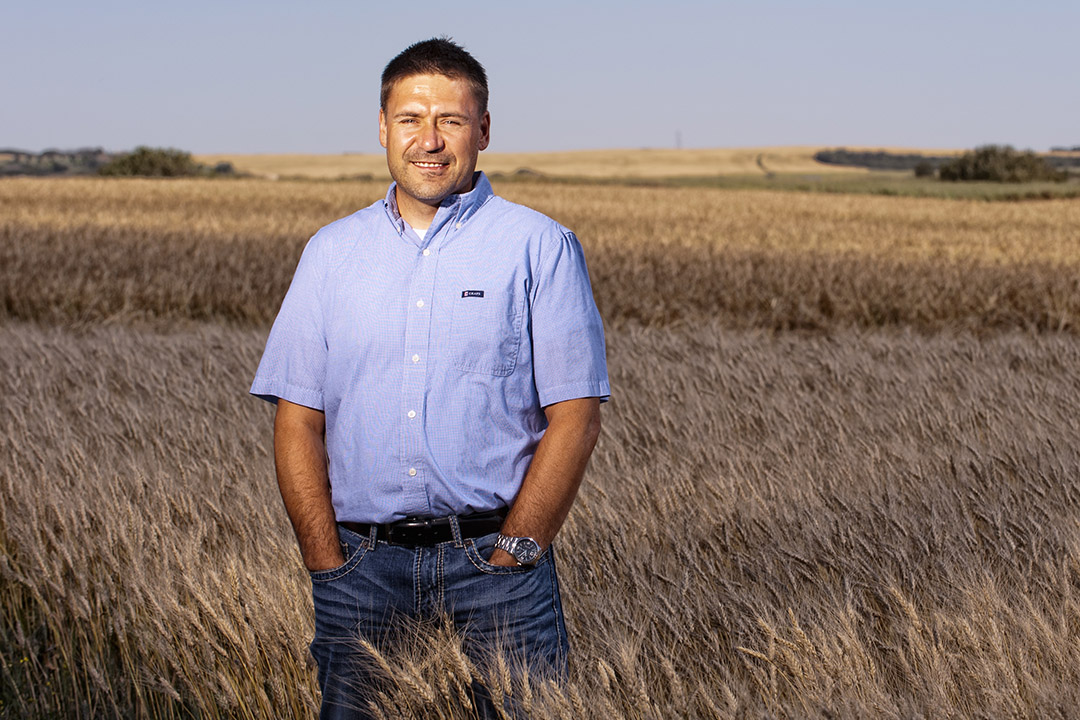
Wheat Congress to put USask in the spotlight
There’s something innately calming about the sight of golden wheat swaying in the breeze. And yet, for someone like University of Saskatchewan (USask) researcher Dr. Curtis Pozniak (PhD), that pastoral image is positively electric with potential.
By HenryTye GlazebrookPozniak points to the sequencing of the wheat genome, which has picked apart the grain’s very DNA to produce a blueprint of its structure, as just one of many recent advancements in the flourishing field of wheat research.
“From a research point of view, it’s a very exciting time because we can use this as a resource to really delve into the genetic makeup of wheat and what makes it tick,” Pozniak said. “What makes wheat, wheat. How does it work, how does it resist pests, and how can we use that information to yield or improve nutritional quality and human health?”
It’s these kinds of breakthroughs that make Pozniak so enthusiastic to chair the local organizing committee of the International Wheat Congress, which will host its inaugural conference in Saskatoon from July 21–26, 2019. The event, which expects to draw upward of 700 scientists from around the world, was created by dovetailing the International Wheat Genetics Symposium and the Wheat Symposium into a single, more robust gathering.
“The idea was to marry those two groups together so that the geneticists get to hear from the agronomists, the agronomists get to hear from the geneticists,” he said. “You get this more cohesive group that better represents the whole value chain of wheat, all the way from basic research right to economics and production.”
Although full programming has yet to be announced, Pozniak said that a unique approach to speaker selection is being taken to ensure a greater degree of geographic, gender and age diversity.
“We’ll be selecting speakers for our program based on a blind peer review of submitted research papers,” he explained. “It doesn’t matter if you’re a senior professor or a student, everyone is going to be judged in a way that ensures that the best science is represented.”
The congress will also offer ample opportunity for visiting researchers and producers to explore the agricultural facilities available to USask students, staff and faculty, with side meetings held on campus before and after the event itself, as well as through tours of USask’s Kernan Crop Research Farm.
“Given the global significance of wheat and the importance of wheat to the Canadian and provincial economy, having the event hosted here will certainly bring a lot of focus and attention to the wonderful ag research that we have here on campus and the state-of-the-art facilities and infrastructure that we have to support our research,” Pozniak said.
What’s most important to Pozniak, however, is the chance to get some of the brightest minds in the field together under a single roof, to share ideas, explore new avenues of wheat research and gain unexpected new footholds in the understanding of one of the world’s most important sources of food.
”Wheat provides twenty per cent of calories and proteins for people in the world. A lot of people don’t know that,” Pozniak said. “A lot of wheat is grown in countries that are poor, so the work that we do as scientists will not only benefit western Canadian producers but also benefit producers in Third World countries where wheat production can be limited by any number of constraints.
“Anything we can do as scientists to improve yields, disease resistance and overall quality and nutrition, will go a long way to help global food security.”

